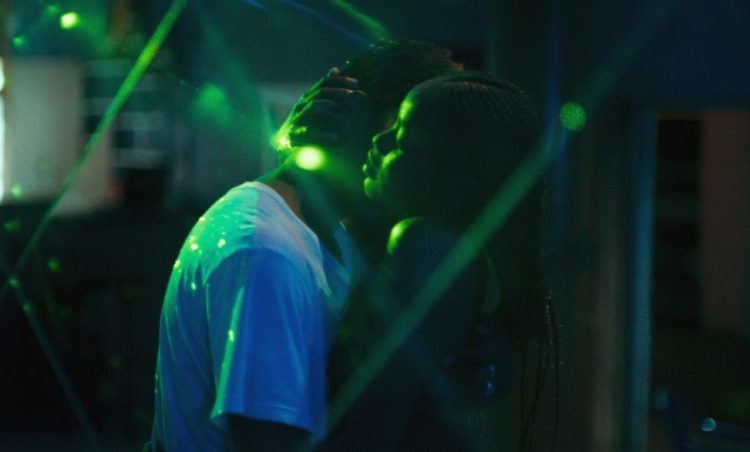Atlantics follows a group of workers in Dakar as they leave the country by boat looking for a better life.
One-sentence review: Atlantics has an intriguing enough story and Mati Diop manages some fascinating scenes of tension and emotion, but it lacks the narrative momentum for it to really take off.
Details: ? Mati Diop // ?????? Senegal, France, Belgium // ⏳ 104 minutes
The cast: Mame Bineta Sane, Amadou Mbow, Ibrahima Traoré
Where to watch Atlantics: Playing at the New York Film Festival October 9th & 10th. Tickets here.

Atlantics is a meditative movie. Director Mati Diop — who became the first black woman to compete for the Palme d'Or at the Cannes Film Festival this year — wasn't afraid to go slow or make the story relatively slight considering where it could have gone. The end product is better and worse for it.
Atlantics takes place in Dakar, on the Atlantic coast of Senegal in West Africa, where a group of workers argues with the management of the construction project they're working on. They haven't been paid in months and they're fed up. One of those workers, Souleiman (Ibrahima Traoré) sneaks away to meet up with his girlfriend Ada (Mame Bineta Sane) to try and tell her something, but she brushes him off and tells him to save it for when they meet up later that night. However, that meeting never happens.
Ada, who is engaged to a wealthy man named Omar (Babacar Sylla), sneaks out to meet Souleiman at a local haunt. When she gets there, all she finds are women from whom she learns that the workers set off to sea to find work overseas in Spain. She's heartbroken that Souleiman has left her and that she must marry Omar. However, one night during a celebration for the couple, a fire breaks out. Though no one is hurt, several witnesses said that it was Souleiman who set the fire, which Ada knows is impossible. Still, the detective assigned to the case (Amadou Mbow) is convinced that it is him.

The movie is based on Diop's own short documentary about Senegalese migrants voyaging overseas in search of work, which is something I wish the movie explored a little more. Much of the focus of the first part of the movie is table-setting. Mostly, establishing Ada as the main character and her struggle following Souleiman's departure. However, it's hard to connect with her — or feel sympathy for her — because we don't get to spend much time with the couple. Their relationship isn't explored except for a brief scene.
That's the main crux of the problem with Atlantics. There is a rich story about migrant workers, class, and female oppression waiting to be tapped. However, Diop instead takes a more cerebral and meditative approach. The result is a first half that drags a bit before the real narrative starts kicking in. The movie takes an unexpected turn to the supernatural, which breathes new life into it. In a way, it feels akin to Olivier Assayas' Personal Shopper as it explores magical realism. Unfortunately, where that movie is an effective meditation on grief, the themes in Atlantics feel muddled.
That all being said, where the movie ends up is interesting. The final few scenes feel so impactful and even emotional — particularly one set in a graveyard and one set in a beachside bar. Or at least feel like they could have been impactful if the preceding hour were better plotted. However, they do point to some real talent that Diop has had they been applied to a stronger screenplay. You can never criticize a movie for being a slow burn. However, you can criticize what it does with that pace. Atlantics doesn't do quite enough.
Hey, I'm Karl, founder and film critic at Smash Cut. I started Smash Cut in 2014 to share my love of movies and give a perspective I haven't yet seen represented. I'm also an editor at The New York Times, a Rotten Tomatoes-approved critic, and a member of the Online Film Critics Society.
Comments are closed.